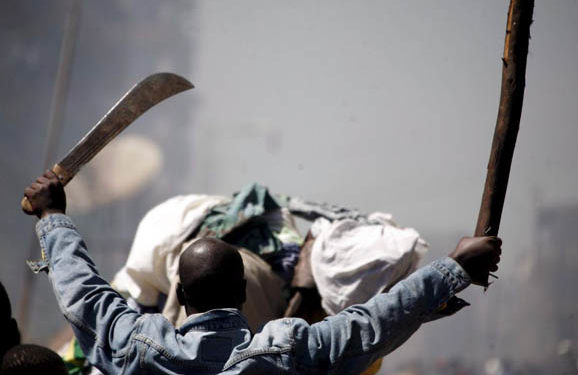By Joyce J Wangui Pressure has started to mount on the Trust Fund for Victims to assist sexual violence survivors of Kenya’s 2007-8 post-election sexual violence after the collapse of cases at the International Criminal Court. New York-based advocacy group Human Rights Watch says in a letter to the Fund that the Kenyan victims continue to grapple with debilitating physical, emotional, and financial consequences of violations committed against them. The letter comes only a fortnight after The Hague-based court vacated charges in the crimes against humanity trial facing William Ruto and Joshua Arap Sang without a conviction and therefore limiting victims’ options for reparations at the ICC. Without a conviction – resulting from a trial process in which someone is declared guilty – the court cannot order the confiscation of property or the payment of compensation by the ICC’s Trust Fund for Victims. The absence of reparations leaves only assistance as the avenue through which the TFV can serve them. Earlier, TFVregional programme officer Scott Bartell, told JFJustice that the assistance programme is unlikely to extend to Kenya or any other ICC situation countries before 2017. HRW highlights the urgent needs for Kenyan survivors, including ongoing physical, mental, social, and economic challenges for which majority have not received the adequate healthcare to treat medical conditions resulting from these violations. The group has asked the Trust Fund to provide the much-needed physical and psychological rehabilitation, or material support to this category of survivors. In terminating the charges for the accused, the presiding judge invited the Common Legal Representative for the Kenya victims to make urgent submissions for reparations or assistance in lieu of reparations. Judge Chile Eboe-Osuji observes that the end of the case was the result of “a very high profile campaign” to arbitrarily end the cases entailed ensuring that the judicial inquiry did not produce a conviction, which would have made it possible for the accused persons to pay reparations to victims. Although Kenya’s President Uhuru Kenyatta pledged to set aside a Sh10 billion ($100 million) restorative justice fund in 2015, there has been no concrete action to bring it to life or further mention of it. Victims of sexual violence remain largely unseen and ignored. In its report, I Just Sit and Wait to Die: Reparations for Survivors of Kenya’s 2007-2008 Post-Election Sexual Violence, HRW highlights the agonies of 163 women and nine male survivors of rapes and other human rights abuses. Men and boys interviewed in the report suffered serious violations including rape, genital mutilation or were forced to watch as their female family members were raped. See Report. www.hrw.org/report/2016/02/15/i-just-sit-and-wait-die/reparations-survivors-kenyas-2007-2008-post-election The women suffered from serious mental or physical health problems, untreated obstetric fistula or undertreated HIV, depression, and anxiety. Many have been stigmatised in their communities – along with children born from the rapes – or even kicked out of their homes. Many sexual violence survivors still grapple with extreme levels of violence and trauma that have left them with serious physical injuries and illnesses, as well as debilitating mental health concerns.The HRW research also found out, for example, that some women still find it difficult to walk or stand for long periods. “Any serious efforts to provide assistance, including options made possible by The Trust Fund for Victims, could help make significant improvements in the quality of life of these individuals,” the HRW letter reads in part. “Victims of sexual violence are far from the only victims who could benefit from the Trust Fund’s active engagement in Kenya. With the recent termination of proceedings against William Ruto and Joshua arap Sang, there is presently no prospect that victims will be eligible for ICC-ordered reparations. We urge the Trust Fund to carry out its assessment of the situation in Kenya as soon as possible, in order to prepare the way for the implementation of assistance projects, including urgently needed physical and mental healthcare and psychosocial support for rape survivors.” Pieter De Baan, the TFV executive director, has previously said that the fund provides assistance using voluntary contribution from donors to cover physical, psychological and material support to victims and their families but so far, no interventions have been made to support Kenyan victims. Fact Box: Between December 2007 and February 2008, following a disputed presidential election, widespread violence left at least 1,133 people dead and displaced more than 600,000 people. Widespread sexual violence against women and girls — as well as men and boys — was less visible than other abuses. Based on testimonies, reports from human rights groups, and hospital data, an official commission of inquiry into the post-election violence estimated that at least 900 cases of sexual violence occurred, but this is likely an underestimate given the reluctance of survivors to report, the stigma attached to sexual violence in Kenya, and fears of retaliation. | |||||
Pressure mounts on Trust Fund to help Kenya violence victims
Please login to join discussion







